This initiative was put forth by the Belt and Road Initiative Sri Lanka (BRISL), an International Development Organization, with greater knowledge in BRI advice and support.
The conference was titled “BRI and a better future for Sri Lanka”, set in motion recently at Galle Face Hotel, Colombo.
The educational seminar series was taken off with the participation of 25 undergraduate student delegates from state universities across the island, including the Department of International Studies, Faculty of Social Sciences - University of Kelaniya, the Department of International Relations, Faculty of Arts - University of Colombo, the Department of Economics, Faculty of Humanities and Social Sciences - University of Ruhuna and the Department of Economics, Faculty of Commerce and Management, the Department of Economics, Faculty of Arts and Culture - Eastern University of Sri Lanka.
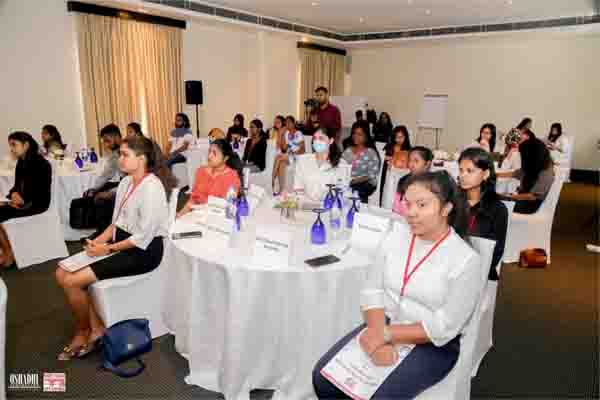
Seminar Series One on "BRI and a better future for Sri Lanka."
The sessions were enriched with the presentations made by key academics and practitioners in the disciplines of International relations and Economics, whose analytical thought provoking presentations and knowledge sharing stimulated rich discussions amongst participants.
China’s Belt and Road Initiative (BRI) is a strategy initiated by the People’s Republic of China that seeks to connect Asia and with Africa and Europe via land and maritime networks with the aim of improving regional integration, increasing trade and stimulating economic growth.
The BRI comprises a Silk Road Economic Belt – a trans-continental passage that links China with South East Asia, South Asia, Central Asia, Russia and Europe by land – and 21st century Maritime Silk Road, a sea route connecting China’s coastal regions with South East and South Asia, the South Pacific, the Middle East and Eastern Africa, all the way to Europe. The BRI defines five major priorities including, policy coordination, infrastructure connectivity, unimpeded trade, financial integration and connecting people. Nevertheless, the initiative is about far more than aforementioned.
The whole notion strengthens China’s development in the Modern era and diplomatic relations with Sri Lanka. The BRISL further accelerates with the objective of deepening the sincere and mutually beneficiary traditional friendship between China and Sri Lanka, improving the partnership between the two countries in the field of educational exchanges.
The initiative further paved the way for the students to make the most of a top-notch panel of lecturers including Prof. Samitha Hettige, Dr. George Cooke, Dr. Vagisha Gunasekara, Prof. Srimal Abeyratne, Mr. Umesh Moramudali, Mr. Thilina Panduwawala, Mr. Kanishka Chathuranga plus, Mr. Cheng Huaqiang.
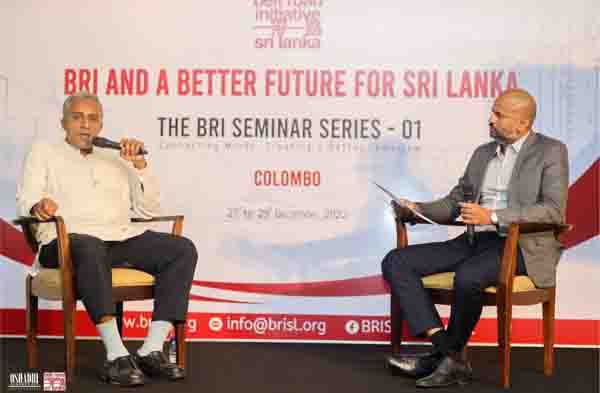
Seminar Series One kicking off with Prof. Samitha Hettige's intro to China's Belt and Road Initiative.
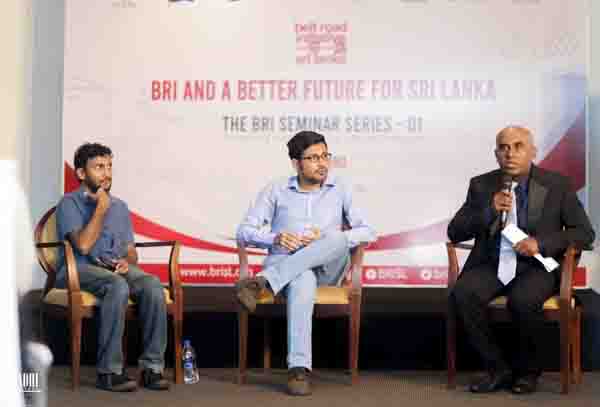
Mr. Umesh Moramudali and Mr. Thilina Panduwawala presenting the findings from their research paper.
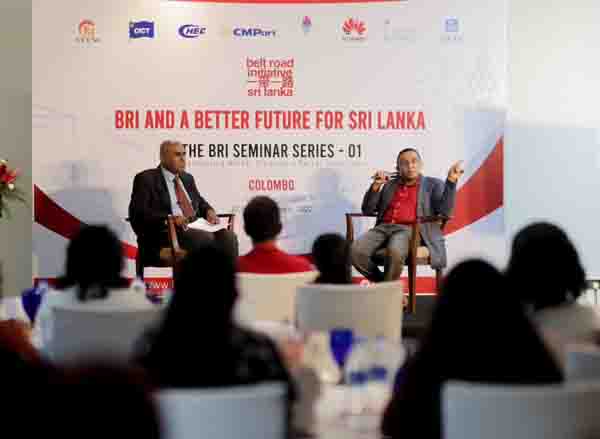
Mr. Maya Majueran along with Prof. Srimal Abeyratne, Professor in Economics of University of Colombo speaking about Sri Lanka's potential for trade and investment with China.
The three day seminar concluded on a high note on the 29th of December with the participation of officials from the Chinese Embassy in Colombo. Participants representing all attending universities commented on the quality and the nature of the seminar that enabled objective and critical discussions to allow for shaping calculated, unbiased and informed opinions on the BRI and its role in Sri Lanka’s development ambitions, which are often clouded with unsubstantiated narratives and accusations, serving interests and adherent parties. Dignitaries attending, encouraged the undergraduates to read and enhance their knowledge using a range of sources that go that extra mile beyond mainstream narratives and to act as ambassadors of the BRI – Sri Lanka partnership for “mutual benefits and win-win cooperation.”
Matters of concerns that were given rise to include, China’s development in the Modern Era and Diplomatic Relations with Sri Lanka, China gifted projects and aid to Sri Lanka; Sri Lanka’s potential for trade and investment with China; and Chinese leading to Sri Lanka: separating the myth and misinformation that was spinning around from reality. Field visits to Huawei Sri Lanka, Port City Colombo, Colombo Lotus Tower and Colombo International Container Terminal were part of the whole seminar series. The program was wrapped up with the sincere hope to line up such informative projects in due course.
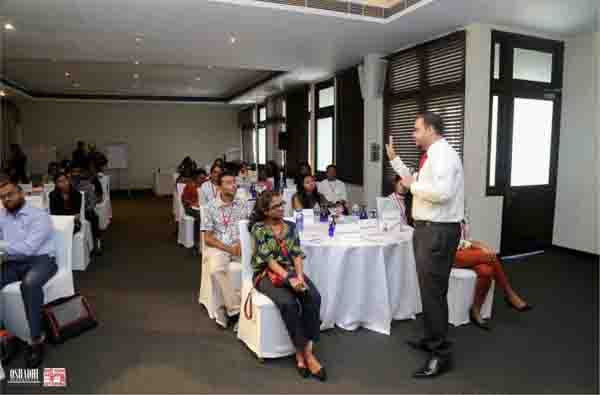
China's development in modern era by Dr. George Cooke.
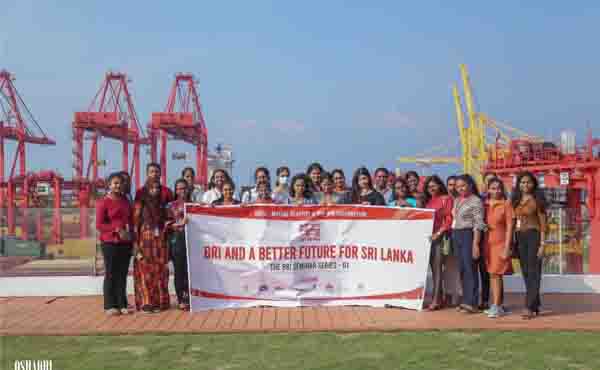
Field visit to the Colombo International Container Terminal.
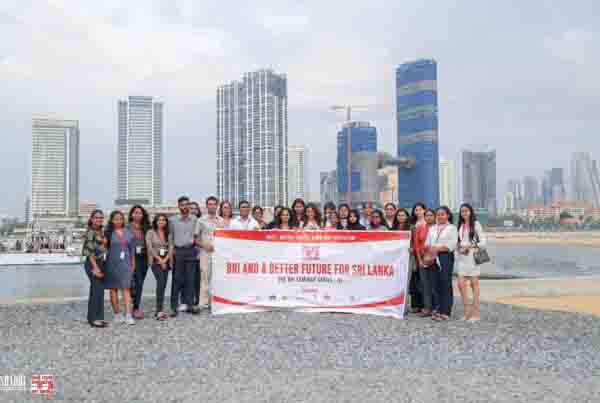
Field visit to the Port City of Colombo.
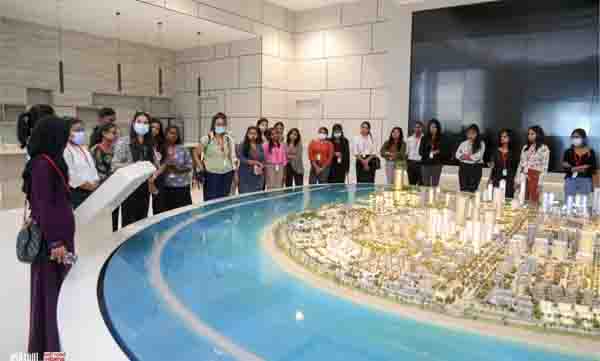
During the field visit to the Port City.
Leave Comments